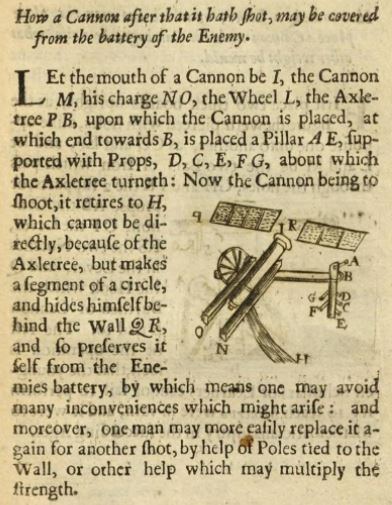Written by the TreasureGuide for the exclusive use of the Treasure Beaches Report.
Here is part of the title page of a publication published in 1674 entitled Mathematical Recreations: Or, A Collection of Many Problems Extracted Out of the Ancient and Modern Philosophers: As, Secrets and Experiments in Arithmetic, Geometry, Cosmography, Horologiography, Astronomy, Navigation, Music, Optics, Architecture, Statick, Mechanics, Chemistry, Water-Works, Fire-Works, etc. In today's sloppy lingo, you might call it a book of hacks, but it is a compilation of practical solutions and curiosities from the point of view of a brilliant and active 17th century mind. While you might find some errors in the book according to our way of thinking, the vast majority of experiments and demonstrations are absolutely brilliant and recommended for testing and use.
We often admire objects from the past, but fail to understand the culture and mind of those who manufactured and used them. That is a serious handicap that can strip the object of its rightful meaning and significance.
Any person today taking the time to explore these secrets and experiments could not do so without significant advancement in knowledge and enjoyment of the physical world, and perhaps also the spiritual world, not to mention the 17th century cultured mind.
Here is one of the hundreds of examples to be found in the compilation: How a gross body of metal may swim upon the water. You will see that they were quite capable of inventing practical engineering solutions without the benefit of computers or aliens.
The purpose of this next example is to set up a cannon so that upon firing, it retreats backwards and to one side to become protected from enemy fire until it is quickly and easily restored to a position for firing again.
If you find this difficult to read, substitute s for f. That might help you.
Click here to access the entire document.
There is both a search box and other methods for moving through the pages.
Here is one more example.
The chapter on fireworks included making a propelled dragon to fly upon a cord. Check it out.
It will also dispel any notion of the active 17th century mind as being inferior to the modern mind in any way.
---
Yesterday I commented on wondering how and why coins such as the Isle of Man Silver Jubilee coin ended up on a beach. Alberto S. responded to that with the following thoughts.
That comment made me remember something I read in the early days of the tragic building collapse in Surfside that stuck with me, the Miami Herald interviewed one of the survivors, an elderly man that had lived in the building for many years and was asked what he would miss the most, an aside from the tragic loss of human lives and many that were his friends he replied; my coin collection. It seems this man had been collecting rare coins for a long time and lost them in the collapse, now this, in no way, compares to the lives lost and the family’s that were killed that night but the situation with his coin collection made me wonder if some how these coins end up in a field somewhere mixed with other debris from the site and someone walking or metal detecting were to find one or many, what would that person think? You have said in some of your posts that sometimes the mystery and history behind and object found on the beach or a field is sometimes more valuable that the object itself, if a coin from that poor man’s collection is found, the person finding it would probably never guess that it has such a tragic history.
Thanks Alberto.
While grieving the loss of life and the tragedy of that sudden disaster, you are left to wonder about the things that populate our lives. What is the significance, if any? In relation to the lives of loved-ones, very little, yet our cherished objects can tell us something about ourselves. A coin collection might be a holder of value, provide some measure of security, education or recreation, and it can be an heirloom meant to be passed down, connecting generations and maintaining the memory of the individuals that make up a family line.
When you find a lost object, think about what it might have meant to someone, and restore the loss when possible.
The mysterious journey of lost items is a big part of what makes them so fascinating. That is why we wonder how and why they got there.
---
Speaking of generations, yesterday I posted some thoughts from JamminJack, who mentioned a possible error.
Here is what he added.
I was doing some research on Chuck Meade, and I may have made an error in saying his relation to Tim. I know Chuck personally, and I thought he had mentioned he had family with Atocha. I know 100% Zach Moore is son of Julia and Bill Moore who were divers back when the silver bars were found on July 20, 1985.
Enjoy the smooth surf and low tides.
Happy hunting,
Treasureguide@comcast.net



